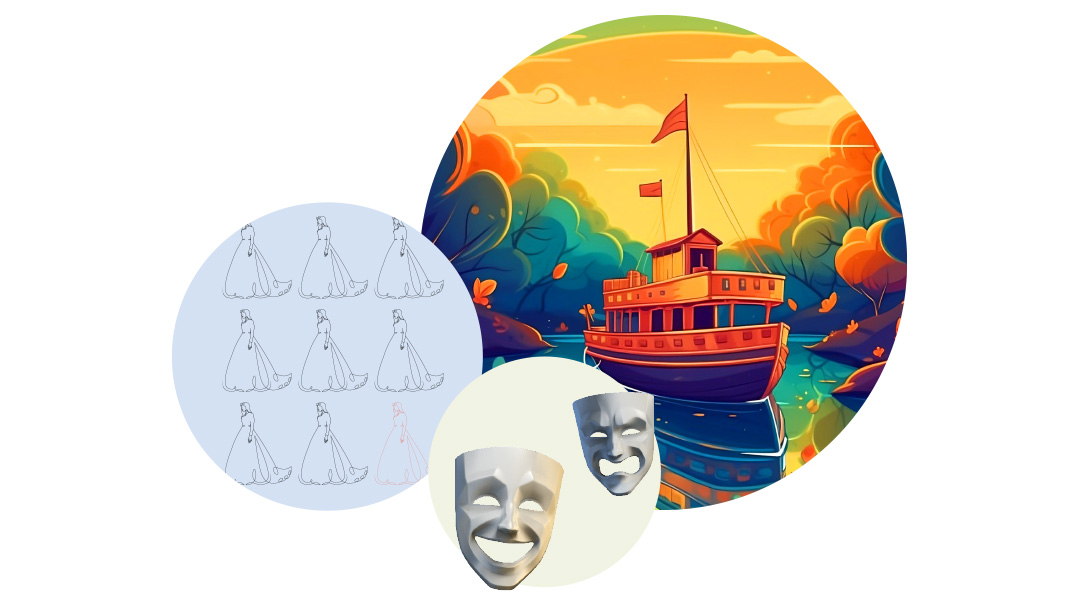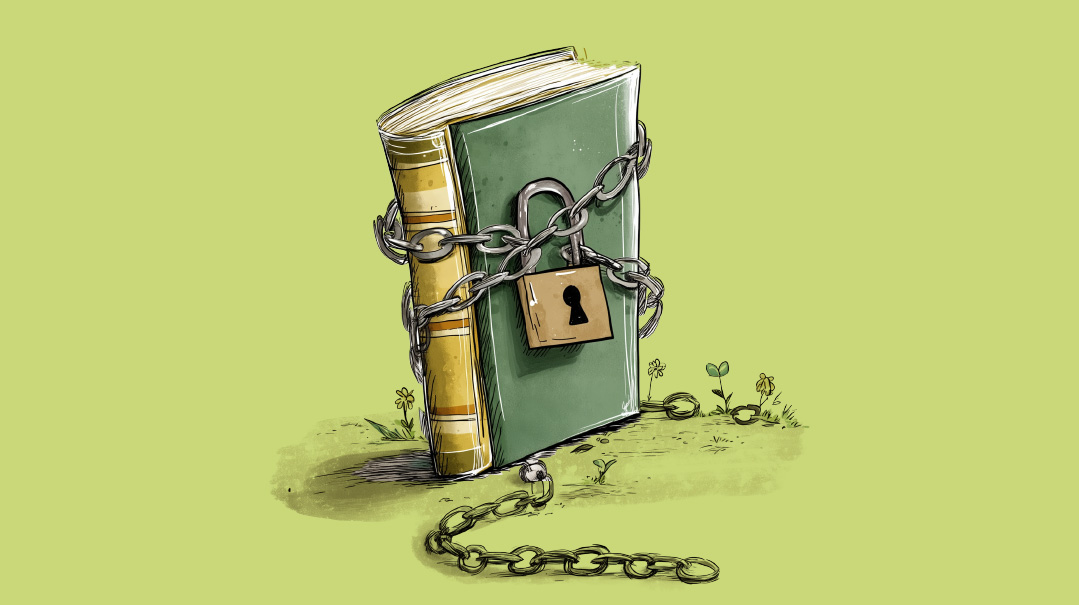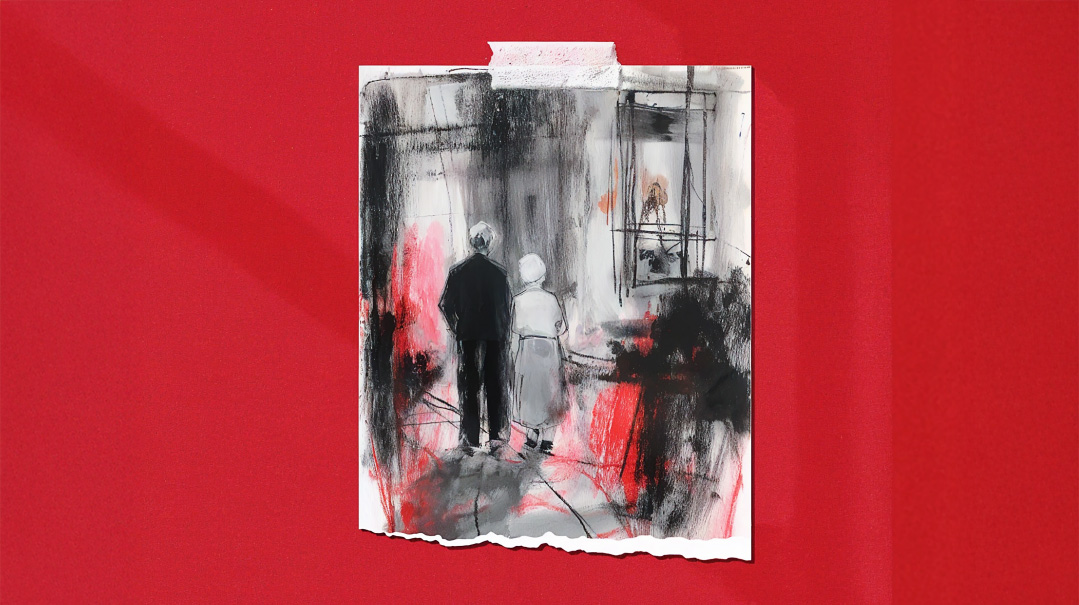Family First Inbox: Issue 845

I know I was difficult, but do I not give my parents nachas?

A Compassionate Approach [The Inner Enemy / Issue 843]
In Mrs. Radcliffe’s article, The Inner Enemy, she writes that “we must challenge our inner critic’s comments” and “fight negativity.” I’d like to respectfully offer a very different approach, one of compassion and healing instead.
Internal Family Systems (IFS) sees extreme thoughts or feelings as responses to inner wounds. When emotional wounding from the past remains unhealed, it often takes much vigilance and energy to change patterns because a person remains very vulnerable and easily triggered.
Instead of viewing wounded parts as the “inner enemy” to be challenged, I encourage you to see them as “inner trailheads,” or starting points for your inner work. Be curious about who the thought or feeling is protecting, and what it needs from you to begin healing. When you work to meet that need with compassion, instead of fighting the thought or feeling, you begin to address the cause, not just the response.
Elyan Rosenbaum, LMHC, NCC
I’m Scared [Meltdown / Issue 843]
I’ve really been enjoying Tzippi Leibenson’s account of raising a child with ASD.
I have a four-year-old son with ASD, and I’d love to talk to another mother with experience. Honestly, reading her story scares me, knowing that it’s going to get harder and harder to deal with my son.
A Scared Mom
Tzippi Leibenson responds:
Thank you so much for reaching out with your thoughts about raising an ASD son. It’s important to keep in mind that this diagnosis is, by definition, a spectrum, with a wide range of symptoms and difficulties. Therefore, what I experienced with my son may have no connection to yours. With proper intervention, your son b’ezras Hashem can grow into a fully functioning adult, while another child may never be able to manage on his own, but again, his issues would have no bearing on yours.
That said, why did I want to write this diary? Surely not to scare you or anyone else. Quite the opposite. I wanted to give chizuk to all mothers, those with ASD children or those dealing with completely different challenges. Because everyone has challenges. And what mine taught me was the message of: You can do this! You can rise to the occasion and find within yourself strengths you never knew you had. And you can succeed in triumphing above these difficulties by becoming a better person, mother, and a source of pride to yourself.
I wish I could meet you in person so you can see that I’m am an upbeat, happy personality and that my house is a normal, fun, happening place to be. My kids are all very close to each other and to Chezky as well. Now that I have marrieds (and yes, people wanted to marry into our family!), the in-laws and their families are also part and parcel of our family, with our good times and bad.
ASD is a challenge, no question. But so are many issues in life. And when you try to get through them and put in your all, you’re left with the feeling that, no, I wouldn’t have chosen this, but I was chosen, and I’m both humbled and honored that I can care for a neshamah this way.
Support Our Businesses [Inbox / Issue 842]
I read Batsheva Kirsch’s article about divorced women and the subsequent responses and suggestions with interest. As a newly divorced single mom, I almost always nodded along with everything that was written. I especially appreciated the list of helpful suggestions written by Name Withheld in Issue 842... until I came to the “offer cash” suggestion and started cringing.
Here’s the thing: it’s not comfortable to accept handouts. Of course, I’m on the radar of all the chesed organizations in my city, and while I appreciate the sentiment, I would feel embarrassed and pained to receive a transparent cash gift like that for no reason. I would worry it might alter friendship dynamics.
However, your point that cash is tight is 100 percent on the money.
My suggestion is this: Many times there are single mothers who sell some kind of ware to supplement their income. Off the top of my head, I can think of several single moms in my city alone who sell challah and/or other baked goods, meals, dips, books, and handmade jewelry. You want to do something nice to support them? Buy their products!
If you can’t use it, buy it for someone else as a gift. Give it to your kids’ teachers for a Chanukah gift. This gives single moms a much-needed parnassah and makes them feel supported in a good way, and empowered that they can do this.
Newly Divorced
Judged and Judged Again [Single Pressure / Issue 842]
I appreciate Miriam Zeitlin for calling attention to a population of singles who work to lie low.
There’s an assumption held about all frum single women; they’re automatically viewed as actively pursuing and strongly wanting marriage. There’s one perceived category of singles: the girls who are victims of the shidduch crisis, who are dealing spiritually, emotionally, and technically with meeting the right one.
Because of this assumption, people will easily dispense sympathetic comments to singles they barely know.
As a frum single woman who graduated from the far right of the Bais Yaakov system, I know that another profile of the unmarried woman exists. There are many, like myself, whose days are consumed with all things life: growth, pain, snippets, and sometimes slices, of joy, deep struggle, and meaningful victories. We’re grounded and growth-oriented people who aren’t yet ready or open to dating and marriage, a leap we hope to take someday soon.
There’s stigma. There’s the misconception that holding off on dating and marriage at an age considered ripe enough indicates a severe level of emotional fragility or mental struggle. I can speak for those who, like myself, are reasonably healthy and functioning beautifully. We’re not lacking or confused in any major way, only working through our internal knots to be healthier, happier people, who are more eager and better equipped to take the step of marriage.
Sure, marrying young has some benefits. Yes, waiting can have some serious repercussions. We’re aware, and we act upon what seems most right at each point in time. Are we uncertain of the outcome? Maybe. Can we control it? Life: it’s gray.
So many human decisions are driven by fear. A young girl can be compelled to pursue marriage, fearing what it means to be single and older in the shidduch system. Another one holds off until a more mature sense of self is developed, for fear of a young, failed marriage.
Neither of these approaches are pathological. They’re merely our best shot at living our lives responsibly. No one outside of this decision can hold judgment, and as Miriam wrote, it’s unreasonable to set a status quo for the timeline of our lives.
A major challenge of singlehood is the lack of autonomy and privacy. Our married peers are given the privacy to make their decisions on financial matters, child-rearing issues, relationship problems. There’s an understanding that a couple, with the help of daas Torah and/or professional guidance, will make a decision independently. Singles of the same age are questioned about the shidduch-related decisions they make with the help of daas Torah and professional guidance.
It’s considered completely, socially acceptable to inquire about or coax a single into dating readiness. The perception of how reasonably healthy, single women should feel about marriage creates intense pressure and leads us to avoid shadchanim, as we fear that admitting where we’re really at will wipe us off the prospects list forever.
Also, because of the notion of marriage being the only gateway to true adulthood, we struggle with decisions that will (unnecessarily) tamper with our reputations. So many of us want to grow independent in a basic way — by moving out of our parents’ homes — but this comes at a huge price in communities where if-you-want-to-get-out-get-married is the only way to adult.
To conclude, it isn’t my intention to shed light on another single woman’s sob story. I only wish to offer perspective on what frum single women may be experiencing outside of what’s already known and advocated for.
Systemic change is slow. It’s hard to shift perspectives and let go of judgment, but it’s important to give voice to everyone.
Name Withheld
It’s Harder for Us [Inbox / Issue 842]
I’d like to respond to the serial Meltdown and the subsequent inbox letter about how hard mothers of ASD children have it. I’m in no way trying to discount what our mothers go through. I saw firsthand how hard my mother had it dealing with me as a young child. I’m also aware that autism is a huge spectrum, adults will look different than children, women look different than men. But I would like to give the perspective of an adult woman who is often not believed when I share my diagnosis of high-functioning autism.
As hard as it may be for those around us, I promise you it’s harder for us going through it. Hearing others lament about how hard their ASD child is breaks my heart. We’re human beings, and contrary to popular belief, we have feelings and they can be hurt, just like yours. One woman commented in an article previously published in these pages that you learn very quickly when you have a child with ASD that your children are not here to give you nachas.
I wanted to cry when I read that. I know I was difficult, but do I not give my parents nachas?
People with ASD are living in a world where everyone has the script except us. And for those of us who don’t “look” autistic, we also have to deal with everyone around us screaming at us that we could read the script if we tried; if we just worked harder, we could read the script.
But we continue to stare at a blank sheet of paper and try to hide our tears.
You see our meltdowns and think we’re making your life so difficult. We lose control too often. You don’t see how that noise that you tune out easily is grating on our senses. Imagine if someone played rock music at full volume constantly, and you were wearing shoes that didn’t fit you right, your back was itchy in that one place you can’t reach, and you’re so hot you’re sweating through your shirt. Wouldn’t you be irritable?
These letters to the editor make me feel as if the people around me, if told of my diagnosis, would no longer see me as human. These autistic children you write about (possibly without their consent) grow up to be, in many cases, functional adults who also read Mishpacha and see what you really think of them. I’m begging you to see that many of us can become “normal” adults with jobs and families who give our parents endless nachas.
I’m also aware that this isn’t true for all of us, and many people with the same diagnosis as me are in fact nothing like me. But I fear these stories create so much fear and wrong ideas about autism. I’m currently in the shidduch system and have no idea what to do. I would never marry someone without telling them, but how do I make it clear that the image in their head is so wrong?
All I’m saying is that yes, we might be difficult at times, but we’re also human beings, and every single one of us is different. Please don’t judge us so harshly and speak about us as if we could never read and understand your words.
Wish I could share my name but obviously I can’t
Wrong Priorities [Oh, Brave New World / Issue 842]
My husband and I both grew up not yeshivish and are now raising our children in the yeshivish world. Though we’re very knowledgeable in halachah, we’re complete foreigners to yeshivish culture, and I therefore read Barbara Bensoussan’s article on the challenge of being a baal teshuvah with great interest.
I was very surprised to read that an element of the yeshivish world I was unaware of was “work[ing] the system” to be able to be “driving nicer cars, living in larger homes” while paying less tuition. We bli ayin hara have a number of children, and our childcare and tuition expenses total to about 60 percent of our gross income. Just a few weeks ago my husband and I went through our expenses and income, and determined that baruch Hashem we’ll be able to make it through another year paying full tuition.
We’re a kollel family, our kids wear hand-me-downs, and we live very simply. It’s a zechus to be able to spend our money on our children’s yeshivah tuition. When we need to, we’ll ask for tuition assistance. But isn’t that a last resort? What message are we sending when we cut back on paying for our children’s ruchniyus in order to pay for a higher standard of gashmiyus?
Anonymous
The Financial Burden [Oh, Brave New World / Family First 842]
As a baal teshuvah, I was extremely interested in reading Mrs. Bensoussan’s article about baalei teshuvah. She brought up some very important points and opened a window for readers to look into the lives of baalei teshuvah, many of whom might be neighbors, fellow members of shuls, or even our children’s teachers.
This wasn’t an easy read, though. I’m not sure if there was a level of intentionality behind this, but in a lot of ways this article was as real as it gets. It didn’t paint the idyllic image of leaving the secular world behind, and pointed out a serious challenge within the kiruv process regarding the ever-present reality of the cost of a frum lifestyle.
I found the rabbis who were interviewed to be extremely aware of the many challenges that baalei teshuvah deal with as they integrate into their new lifestyle. On the other hand, I was surprised that not one female kiruv professional was interviewed.
As expressed in this article, it’s easy for those who become frum to feel that there is a “trade-off” between their previous lifestyle, talents, and careers. The impression the article gave is that those interviewed talents had to put their talents on the back burner or leave them behind due to time constraints. We all know that family and work take precedence over hobbies or passions, but this is such a loss to the frum community. Imaging how great it would be for our Bais Yaakov daughters to get vocal instruction from someone who was a professionally trained singer? Talents like this can only enhance our frum lives and those of our children.
What is termed “buyer’s remorse” for those who become frum is an issue that has been addressed institutionally within kiruv circles, especially when it comes to the financial burden of a frum lifestyle. I applaud the way that Barbara Bensoussan was able to highlight this.
When you become frum you don’t hear about the financial struggles. This article touched on this, as well as affluence within some circles. But I would have at least liked to see a sentence about the tzedakah and chesed that exist in the frum community, as well as the beauty of the “gemach culture” within the frum world.
N. Harris
Chicago, IL
(Originally featured in Family First, Issue 845)
Oops! We could not locate your form.







